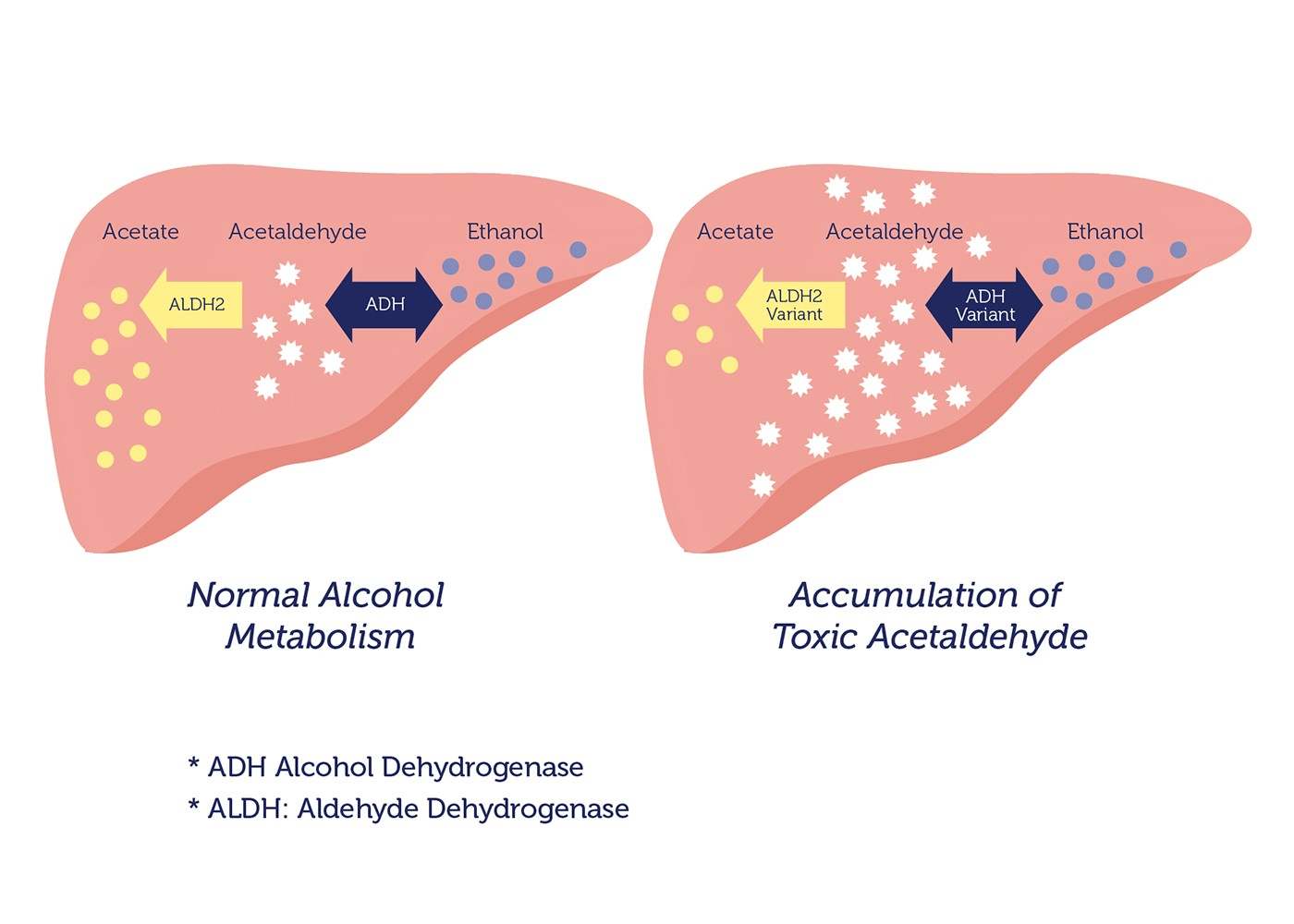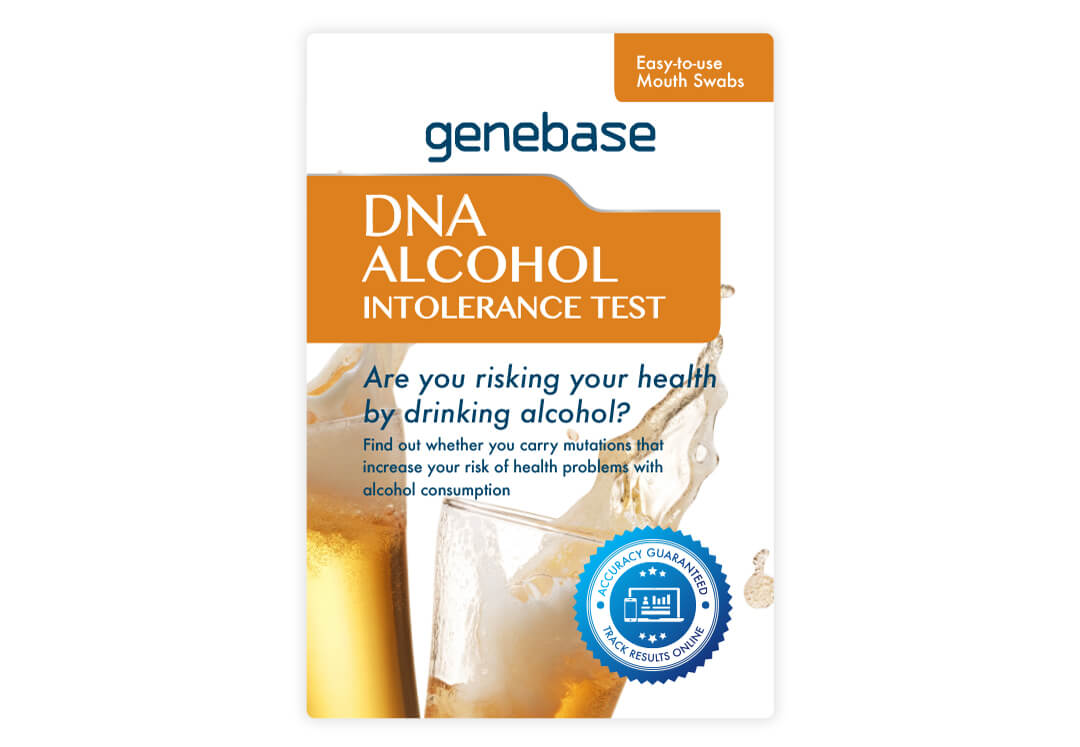DNA Alcohol Intolerance
Does your face turn red when you drink? Do you experience severe hangovers from just one drink? If you answered yes, you may be alcohol intolerant. Find out your risk of alcohol intolerance with this DNA test.
- Includes mutations in ADH and ALDH genes that affect alcohol metabolism
- Alcohol intolerance is linked to higher risk of esophageal cancer:
– 10X increased risk for moderate drinkers
– 90X increased risk for heavy drinkers
- People with one or more mutations are harming their health every time they consume alcohol
$149.00
If you already took the DNA Alcohol Intolerance Test, login to your Genebase account to access this app.
If you have not taken the DNA Alcohol Intolerance Test, take the DNA test to access this app.
Detailed Description
The majority of the alcohol (aka the chemical ethanol) that enter our body is cleared via a two-step process involving two enzymes.
In the first step of alcohol metabolism, alcohol dehydrogenase (ADH) converts ethanol to acetaldehyde. Acetaldehyde is a toxic chemical. But is usually short-lived, because it is quickly converted to acetate by aldehyde dehydrogenase (ALDH) in the second step of alcohol metabolism. The end product acetate is easily broken down to carbon dioxide and water.
People with genetic variants in the alcohol metabolism pathway either generate acetaldehyde too quickly, or are unable to eliminate it fast enough. This results in the dangerous build up of acetaldehyde in the body, even when moderate amounts of alcohol is consumed.
A simple mouth swab is all we need to find out whether you have inherited DNA changes that affect your ability to metabolize alcohol, and may increase your risk of serious health complications.

The Genetics
People with genetic variants in the alcohol metabolism pathway either generate acetaldehyde too quickly, or are unable to eliminate it fast enough. This results in a dangerous build up of toxic acetaldehyde in the body, even when moderate amounts of alcohol are consumed.

- ADH1B and ADH1C – converts ethanol to acetaldehyde (first step of alcohol metabolism). Variants increase ADH enzyme activity leading to the build up of acetaldehyde.
- ALDH2 – converts acetaldehyde to acetate (second step of alcohol metabolism). A common variant decreases ALDH enzyme activity, slowing the removal of toxic acetaldehyde.
Health Risk for Heterozygotes
Heterozygotes are people who inherit two different versions of a particular gene. ADH1B, ADH1C and ALDH2 genes have a cumulative affect. For example,
Individuals with two slow ALDH2 alleles have:
– Zero detectable ALDH enzyme activity
– Severe side effects
Heterozygotes for ALDH2 (one fast allele and one slow allele) have:
– 30-50% reduction in ALDH enzyme activity
– Moderate side effects
– An increased risk of health complications
- 10-fold increase risk of esophageal cancer for moderate drinker
- 90-fold increased risk for heavy drinkers
Symptoms of Alcohol Intolerance
If you are genetically susceptible, every drink you consume is harming your health
- Immediate reactions: facial flushing, nausea, dizziness, headaches, increased heart rate, insomnia, severe hangovers
- Increased risk of esophageal cancer: 10X increased risk for moderate drinkers and up to a 90X increased risk for heavy drinkers
- Cardiovascular problems
- Memory loss
- Mental confusion
- Psychological issues
How It Works
Order your test kit
Get free shipping both ways with no hidden fees
Test your DNA
A simple, painless mouth swab is all that’s needed
Get Results
View your results from your secure account



